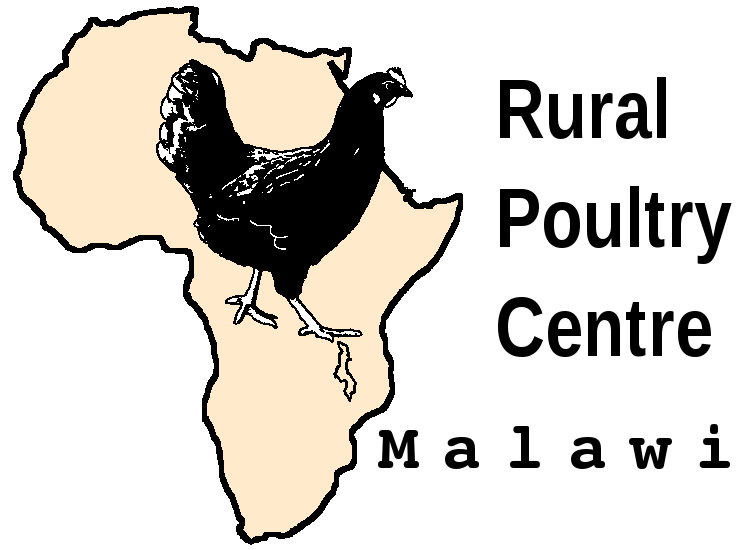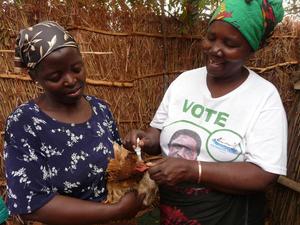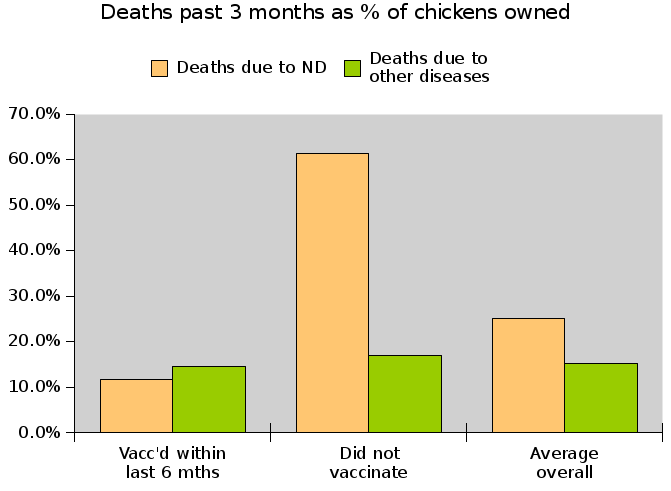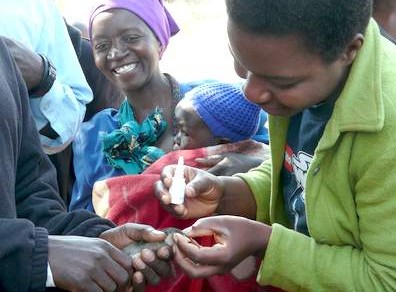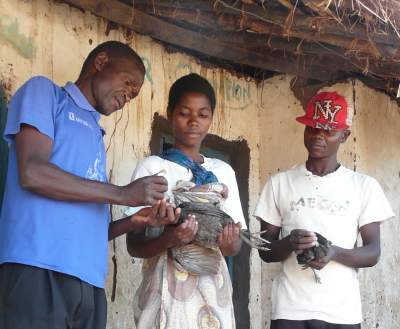In a bit more detail
Our beginnings
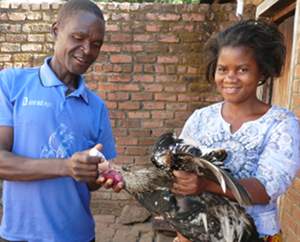
RPC first emerged as a result of common interests in work being done by two NGOs, the Kyeema Foundation and the Small Scale Livestock and Livelihoods Program (SSLLP Malawi). Both of these NGOs had a key role in supporting village poultry and shared common ideas on how to achieve progress.
SSLLP's work coincided with and complemented the program of work undertaken by the Kyeema Foundation on the "Regional Newcastle Disease Control Project". SSLLP was instrumental in reviewing several phases of that project and strongly argued the importance of the vaccination program. In particular, the wider adoption of Newcastle disease vaccination made possible through scientific advances in vaccine technology was seen as a journey only partly completed.
Individuals from both organisations agreed that village poultry in Malawi were of such significance that a local group dedicated to the sector should be established. Consultations in early 2013 between SSLLP, the Kyeema Foundation, and a range of interested individuals led to the establishment of the Rural Poultry Centre in Malawi as an affiliate of the International Rural Poultry Centre based in Brisbane, Australia. The story is told in more detail here.
Our Board of Trustees
The RPC is subject to the overall direction of a Board of Trustees presently comprised of five elected members.
Our Vision and goals
The vision of RPC is improved livelihoods amongst resource poor and vulnerable families.
The mission of RPC is to sustainably improve rural livelihoods through interventions encompassing poultry.
Its goals are:
To empower, educate and motivate individuals and communities;
To contribute to socio-economic development of resource poor families;
To advance village poultry health and production;
To prevent and control diseases of poultry;
To act as an information centre on rural poultry.
Our values and our policies
RPC's activities are circumscribed by its desire to follow high standards of governance, not only of a financial nature but also encompassing our relations with all stakeholders. We have more to say on this here.
Facilitated by its close links with the Kyeema Foundation, RPC maintains and continues to develop a range of policies which are based on sound principles and which reflect many of the established norms promoted by the Council of NGOs in Malawi (CONGOMA) and like-minded organisations such as the Australian Council for International Development (ACFID). To this end, RPC has finalised the following:
- RPC Code of Conduct
- RPC Child Protection Policy
- RPC Guidelines Regarding Complaints or Grievances
- RPC Human Resources Manual (including Equal Employment Opportunity)
- RPC Organisation Chart
Our program of activities
RPC has close interactions with rural communities throughout Malawi. We are therefore careful to respect the dignity, values, history, religion and culture of the people with whom we work. We recognise the importance of the traditions and wisdom of local people everywhere.
RPC acts as a focal point for a wide range of individuals and institutions whose work involves the smallholder poultry sector in Malawi. It strives to coordinate, streamline and strengthen development of poultry health and production. It works in close consultation and collaboration with government, NGOs and communities. RPC fosters wider government and community commitment to the village poultry sector.
Through networking with like minded institutions and individuals, RPC acts as a hub for discussion of issues affecting the smallholder poultry sector. It functions as a forum for exchange of knowledge and ideas. Through its web site and through other means, RPC serves as a knowledge base for distribution of information on village poultry. It undertakes field-based research to obtain authoritative baseline information.
Our annual reports can be found here.
And here are a few pertinent questions and answers about our current work.
Cross cutting issues:- Gender, Environment, HIV and AIDS
An innate aspect of village poultry systems is the dominant involvement of women and children in caring for and owning village chickens. The goals of RPC are thus predisposed to favour women and children, thus offsetting some of the deep-seated inequities which exist in terms of gender issues and age. In addition however, RPC deliberately promotes the involvement of women in its programs, especially given the observed fact that women are excellent handlers of livestock throughout rural communities in Malawi.
RPC's work with rural poultry aids in environmental issues in several ways. Village chickens are a low input system of animal production which does not draw heavily on non-renewable resources. Their manure is put to good use on crops thereby reducing dependence on chemical fertilisers. Finally, along with other livestock, village poultry play an important role in raising the level of resilience to environmental shocks and disasters which disrupt the normal supply of food for poor communities.
Village poultry can be an aid to nutrition through protein-rich products such as meat and eggs. Their adoption to improve nutrition for HIV infected individuals is a useful practice to mitigate the effect of HIV and AIDS on Malawian communities.


